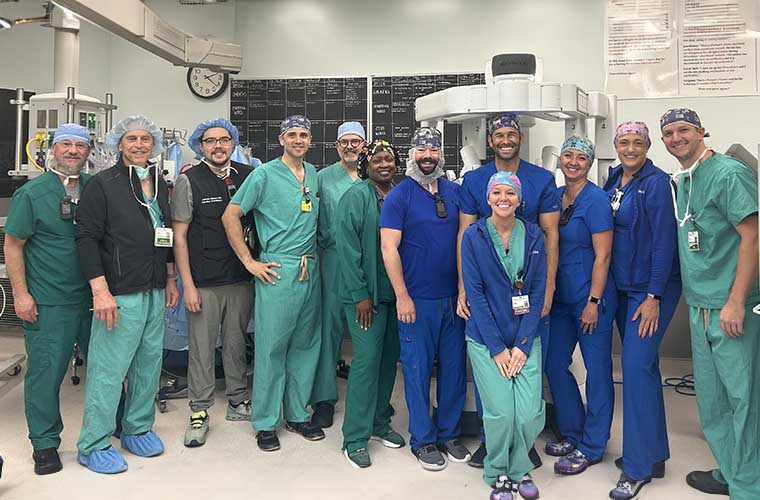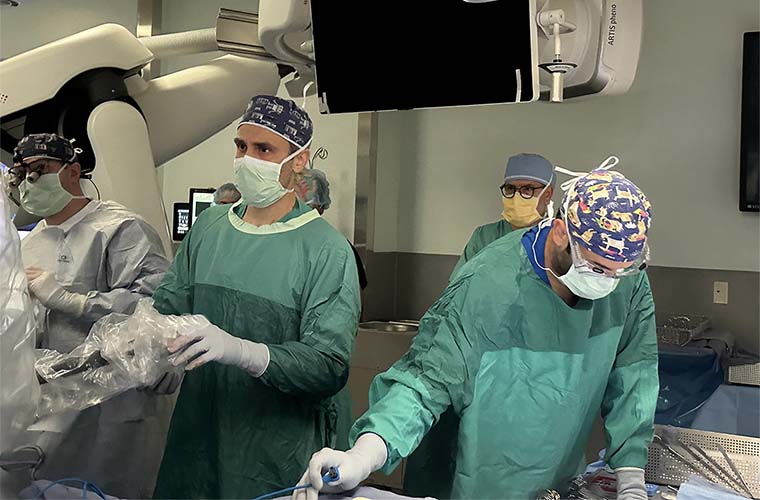Morton Plant Hospital Offers Robotic-Assisted Coronary Artery Bypass Surgery

Morton Plant Hospital recently completed its first robotic-assisted, minimally invasive coronary artery bypass surgery (CABG), making it one of only two hospitals in the Tampa Bay area to offer robotic-assisted CABG. Morton Plant Hospital was ranked #1 in Florida for Cardiac Surgery in 2023 by Healthgrades.
Cardiothoracic Surgeon Michael Kayatta, MD, and his partner, Cardiovascular Surgeon John Ofenloch, MD, performed the procedure earlier this week, with the assistance of their highly skilled surgical team.
CABG surgery is needed when plaque has built up in arteries carrying blood to the heart causing the arteries to be severely narrowed. The surgeon creates a new path for blood to flow by using a healthy artery or vein from another part of the body and connects it past the blockage on the heart.
In a traditional CABG, the surgeon cuts open the chest by dividing the breastbone and spreads the ribs to expose the heart. The heart is stilled, requiring the patient to be on a heart-lung machine during the surgery. Full recovery often takes about two months.
The robotic-assisted CABG only requires four small incisions between the ribs. A small camera and surgical tools are attached to the robotic arms and guided through the incisions. The heart continues to beat through the procedure, with special tools stabilizing a part of the heart.

The computer console, which shows images of the heart magnified up to 10 times normal vision, gives the surgeon the ability to guide the surgical instruments, attached to the robotic arms, with his fingers while watching the screen. The robotic arms that are controlled by the surgeon have greater range of motion and are more precise than human arms.
A major potential benefit of a robotic-assisted CABG is a quicker recovery for the patient. The smaller incisions should also result in less scarring.
“We are excited to bring this new technology to patients at Morton Plant Hospital,” said Dr. Kayatta. “Many people hear robot and think a machine will be doing the surgery. We have a highly skilled, experienced team performing each surgery. The robot is simply a tool that helps us to treat more patients and get them back to their life in weeks rather than months.”
Drs. Kayatta and Ofenloch are both with BayCare Medical Group’s Cardiovascular and Thoracic Surgery clinic in Clearwater.
For more information on heart and vascular services at BayCare: Heart and Vascular Services.
